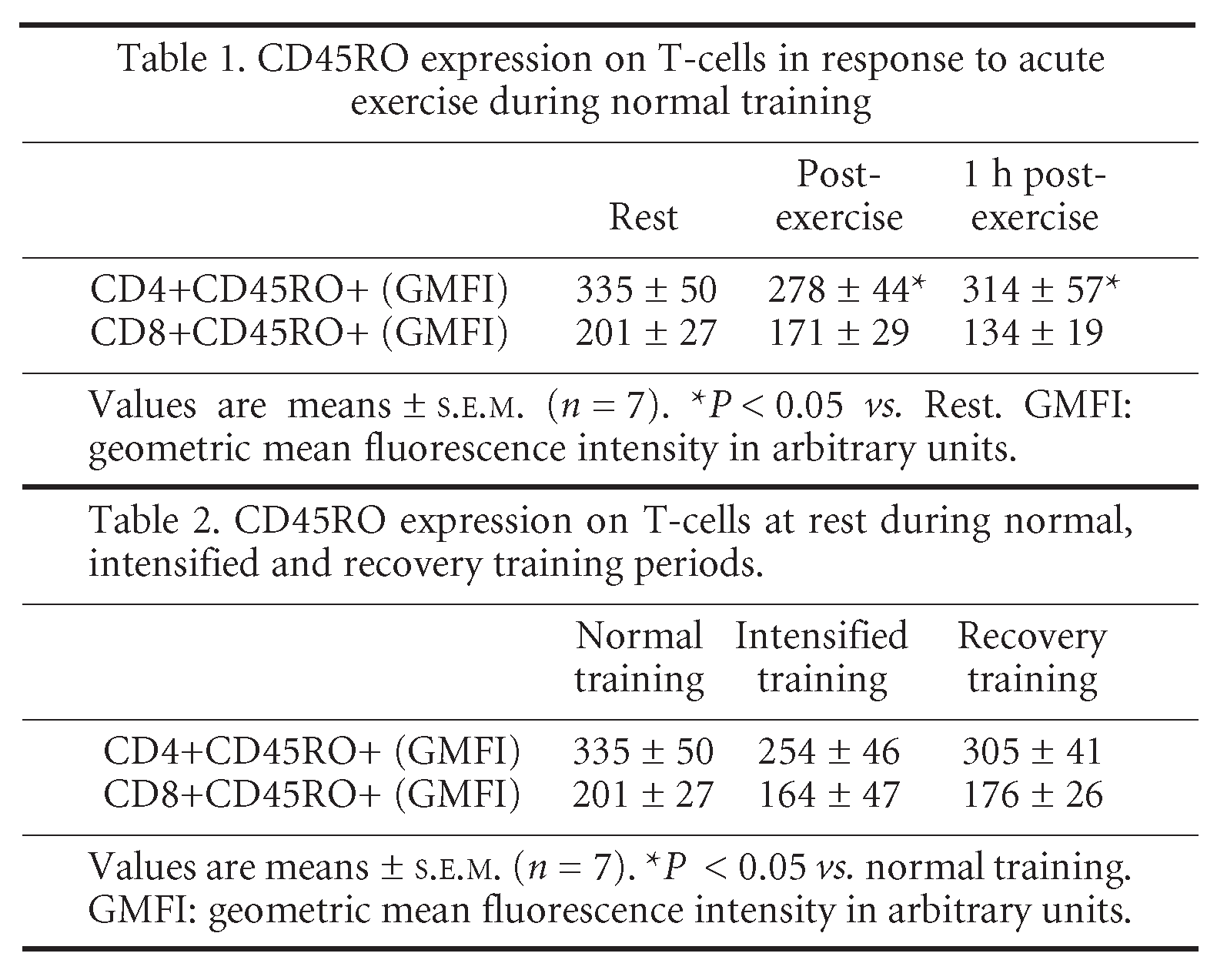A previous study suggested that the expression of an activation marker (CD45RO) on T-lymphocytes was significantly higher in athletes diagnosed as suffering from overtraining syndrome (Gabriel et al. 1998). The aim of the present study was to determine the effect of acute exhaustive exercise and an intensified training period on human lymphocyte CD45RO expression.
Following approval by the South Birmingham Local Research Ethics Committee, seven healthy endurance-trained men (age 30 ± 2 years, body mass 75 ± 3 kg, maximal oxygen uptake (×{special}O2max) 4.55 ± 0.11 l min-1; means ± S.E.M.) completed three trials consisting of cycling exercise at a work rate equivalent to 74 % ×{special}O2max until volitional fatigue. The trials took place before and after a 6-day period of intensified training (IT) and after 2 weeks of light recovery training (RT). Normal training (NT) consisted of ~10 h of cycling per week; during IT the training load was increased on average by 73 %. During RT, exercise was limited to no more than 3 h per week for 2 weeks. Training intensity and duration were confirmed by the use of heart rate monitors. Venous blood samples were collected at rest, during and after the exercise trials. Samples were stained for T-lymphocyte surface antigens (CD3, CD4, CD8, CD45RO and CD45RA) and analysed using flow cytometry. A two-way (trial X time) repeated measures ANOVA was used to compare means with post hoc Tukey or paired t tests as appropriate.
Time to exhaustion in the exercise trials was 107 ± 7, 85 ± 5 and 100 ± 7 min during NT, IT and RT periods, respectively (P < 0.01 NT vs. IT). Following the acute exercise trial during NT the CD45RO expression fell significantly (P < 0.05) on CD4+ cells (Table 1). However, the circulating number of T-cells expressing CD45RO at rest (about 400 and 180 cells mm-3 for CD4+CD45RO+ and CD8+CD45RO+ cells, respectively) was not different in the NT, IT and RT periods and the CD45RO expression at rest tended to be lower during the IT period (Table 2).
These results indicate that T-cell CD45RO expression is not increased by acute exercise or short-term increases in the training load.
This work was supported by GlaxoSmithKline.

